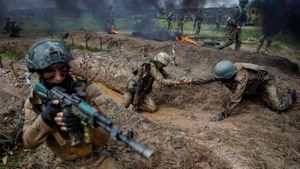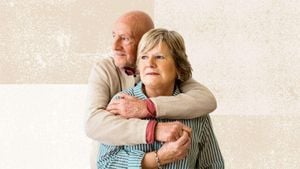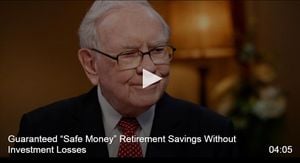Berlin is alive with conversations as Chancellor Olaf Scholz, currently abroad meeting world leaders, faces intense scrutiny back home. A buzz is swirling within his party, the Social Democrats (SPD), over whether he should campaign for re-election as the head of the German government amid rumors of potential rivals springing up. With early elections on the horizon, speculations are running rampant about Scholz’s prospects and the future of the SPD.
Unlike rival parties who have already thrown their candidates' hats in the ring, Scholz's SPD has yet to formally nominate him as its choice for chancellor for the upcoming election scheduled for February 23. This has fueled continuous dialogue about the possibility of the party endorsing Defense Minister Boris Pistorius instead, whose popularity appears to overshadow Scholz’s waning support.
Scholz’s relationship with the coalition government is coming under fire, particularly after it recently encountered turbulence due to disputes surrounding the German economy's lackluster performance. Leading lawmakers have noted the chancellor's current standing is intrinsically tied to the coalition (comprising the SPD, Greens, and Free Democrats), which has suffered setbacks, making his path to re-nomination even more complicated.
Two prominent legislators, Wiebke Esdar and Dirk Wiese, recently stated they’ve been receiving considerable feedback predicting high expectations for Pistorius, citing compliments coming in from various sectors. Esdar and Wiese believe the party committees, rather than the party’s hierarchical structure, should play the ultimate role in deciding who their chancellor candidate will be.
Despite the strong camaraderie among SPD leaders who appear unwaveringly supportive of Scholz, public sentiment reflects disarray. The party’s approval has noticeably dipped, resting around 16%, approximately half the support level of their opposing center-right Union bloc, now leading the polls. This is drastically lower than the 25.7% of the votes they garnered during the previous election when Scholz was regarded as the steady ship, engaged as the vice chancellor and finance minister.
Scholz’s declining popularity is not for lack of effort on his part; frustrations stemming from incessant disagreements between his coalition partners have started to tarnish his leadership image. The conflict reached its breaking point on November 6, when Scholz dismissed Finance Minister Christian Lindner, prompting Lindner’s Free Democrats to exit the coalition entirely.
To address his fragile political standing, Scholz has scheduled a confidence vote for December 16. Predictions suggest he might lose, paving the way for the president of Germany to dissolve parliament and call for elections—possibly months earlier than anticipated.
Throughout this tumultuous period, Scholz has consistently expressed his desire to secure another term. Hours before Esdar and Wiese’s reflections, the Social Democrats' co-leader, Saskia Esken, reaffirmed her solidarity with Scholz, stating emphatically, "We are determined to go to the polls with Olaf Scholz and to win this election together with him." Esken portrays Scholz not just as chancellor, but as their principal candidate for the role.
Despite this support, there is confusion as to why the leadership remains undecided about formalizing Scholz’s candidacy. Esken assured the media, "Because it's so clear,” yet critics interpret it as part of the uncertainty plaguing the party. Meanwhile, as Scholz returns from the Group of 20 summit, the urgency of firming up the SPD's stance is palpable.
With rival parties moving swiftly on the campaign trail, the center-right Union bloc has already nominated Friedrich Merz as its candidate, and the Greens have tapped Vice Chancellor Robert Habeck to spearhead their efforts. While Pistorius remains brazen about supporting Scholz—declaring he has no intentions of challenging the chancellor—he acknowledges the fluidity of politics with the remark, "You should never rule out anything..."
The upcoming weeks are pivotal for Scholz and the SPD, as coalition dynamics will likely determine the chancellor's political future. The public is watching closely with bated breath, waiting to see how this political drama will play out and whether Scholz can regain his footing amid mounting challenges and looming elections.



